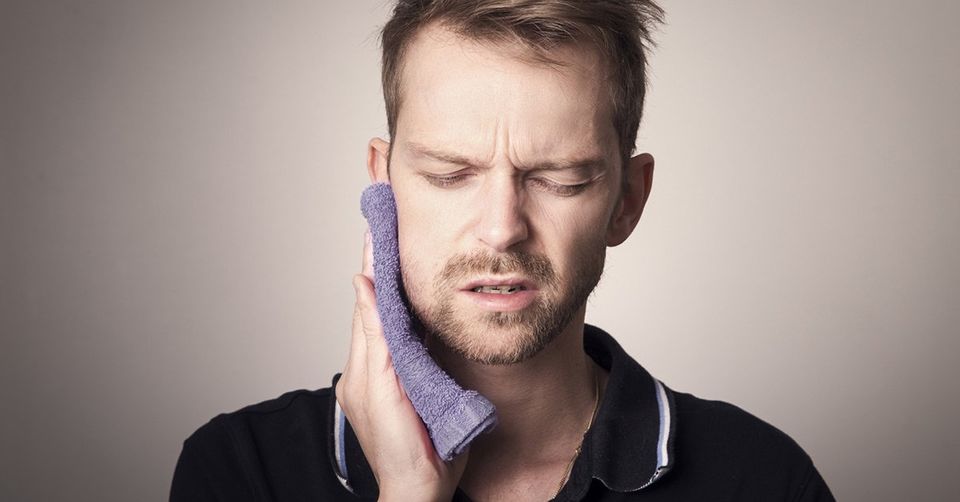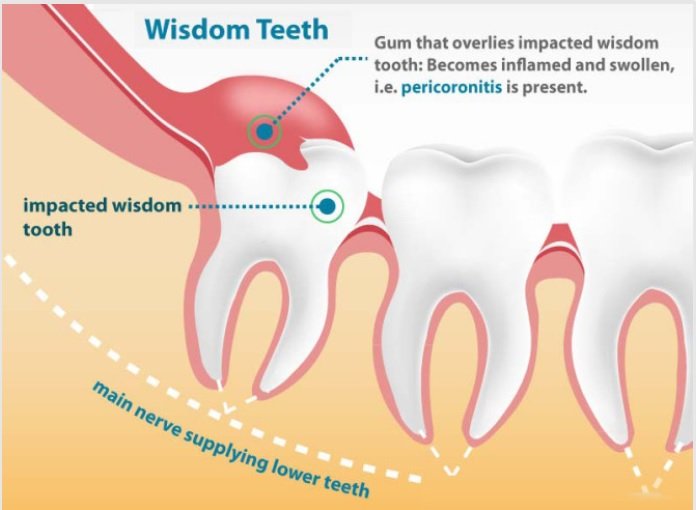
Do you know anyone who has had their wisdom teeth removed? Then you must have heard of the dreadful procedure.
Wisdom teeth removal is a common dental surgery that many people go through. during their teenage years and beyond. It can be a daunting prospect, leaving many feeling anxious about what to expect. But the million dollar question that many will ask is, how much does wisdom teeth removal hurt?
The answer is yes and no. During the surgical procedure, patients are given local anaesthetic to numb the surrounding area as well as the tooth. As such, patients do not feel any pain when the wisdom tooth is removed. However, patients will experience pain and swelling in the cheek area where the wisdom teeth is removed.
Everyone experiences pain differently, so it’s important to be informed on what the procedure entails and how you can prepare for it. In this article, we will discuss whether wisdom teeth removal hurts and how you can make the process as comfortable as possible.
Why Remove Wisdom Teeth?
The wisdom tooth, also known as the third molars, are often removed as a preventive measure because they can cause numerous dental issues including crowding, infection, and damage to the surrounding teeth.
As the last set of teeth to erupt, wisdom tooth often do not have enough space to grow in the jaw. As a result, the wisdom tooth is stuck in the gum tissue and becomes impacted. When a wisdom tooth becomes impacted, it can apply pressure on the gum as it attempts to erupt. This leads to pericoronitis, a situation where there is swelling and inflammation in the gum tissues around the wisdom tooth. Acute pericoronitis symptoms include severe pain, fever, pus, and lockjaw (trimus).
Furthermore, wisdom teeth can cause push against adjacent teeth in an already crowded mouth, causing misalignment of the teeth. This may snowball into a bigger dental issue as it may not only affect the overall bite of the teeth and but also lead to difficulty in cleaning.

Last but not least, wisdom teeth removal may be recommended to make orthodontic treatment more effective. If wisdom teeth are causing crowding of the front teeth, removing them can make it easier to straighten the remaining teeth by providing the necessary space for them to shift.
While there is no hard and fast rules on the best age to remove your wisdom teeth, most dentists recommend patients to remove it before the age of 25 as the roots of the teeth have not fully develop to its full size.
Why Wisdom Teeth Removal Does Not Hurt?
As explained early, the answer depends on whether it is during or after the surgical procedure. When it comes to the procedure itself, most people will receive one of three types of anesthesia:
- Local anesthesia: This numbs a specific area of the body rather than putting the patient to sleep, allowing the patient to stay awake during the procedure but unable to feel pain in the area where the teeth are being removed. The most common type of local anesthesia used for wisdom teeth removal is lidocaine, which is injected into the area around the wisdom teeth.
- IV sedation: Also known as intravenous sedation, this is a type of sedation that is administered through a vein. During IV sedation, the patient will feel relaxed and may even drift off to sleep. They will still be able to respond to commands and follow instructions, but will have little or no memory of the procedure. IV sedation allows the patient to remain conscious and responsive throughout the procedure, while also relieving pain and anxiety.
- General anesthesia: In contrast to local anesthesia or IV sedation, general anesthesia puts patients into a deep sleep. This type of anesthesia is typically used for more complicated procedures and are usually administered through an IV or a breathing mask. General anesthesia is to be done by a licensed anesthesiologist or nurse anesthetist in a hospital or surgical center.
You may be interested in: What Are The Benefits Of Keeping Wisdom Teeth?
In all cases, patients should not feel any pain during the removal of the wisdom teeth. Note that in both local anesthesia and IV sedation, if pain is felt during the procedure, your dentist or oral surgeon needs to be informed as it indicates that the anaesthesia is weaning off.
Once the procedure is over, you will likely experience some swelling, bruising, and pain in the affected area. This is normal and should be expected after oral surgery. That said, the healing process takes place rather quickly and the pain should go away within the next 2 to 7 days.
To manage pain and discomfort during the recovery period, it is important to follow the instructions provided by your dentist or oral surgeon. This may include taking pain medication as prescribed, applying ice to the affected area, and adhering to a soft food diet until the recovery process is complete. It is also important to take note of the following post-procedure:
- Clean the surgical site often to prevent an infection.
- Avoid smoking to prevent slowing down the healing process. or consumption of alcohol for 24 hours after the surgery.
- Avoid consumption of alcohol as it can thin the blood and cause increase in bleeding
- Avoid hard or crunchy food as it may dislodge the blood clot and cause dry socket
- Avoid exercising 24 to 48 hours after the operation to avoid increased bleeding and swelling
- Attend all follow-up appointments to ensure that your oral surgeon or dentist is overseeing your healing process.
In summary, wisdom teeth removal is a relatively painless surgical procedure. However, one will definitely experience discomfort during the recovery period as the wound heals. If you are considering wisdom teeth removal, it is important to discuss the procedure and recovery process with your dentist or oral surgeon to understand what to expect and how to manage any pain or discomfort.






